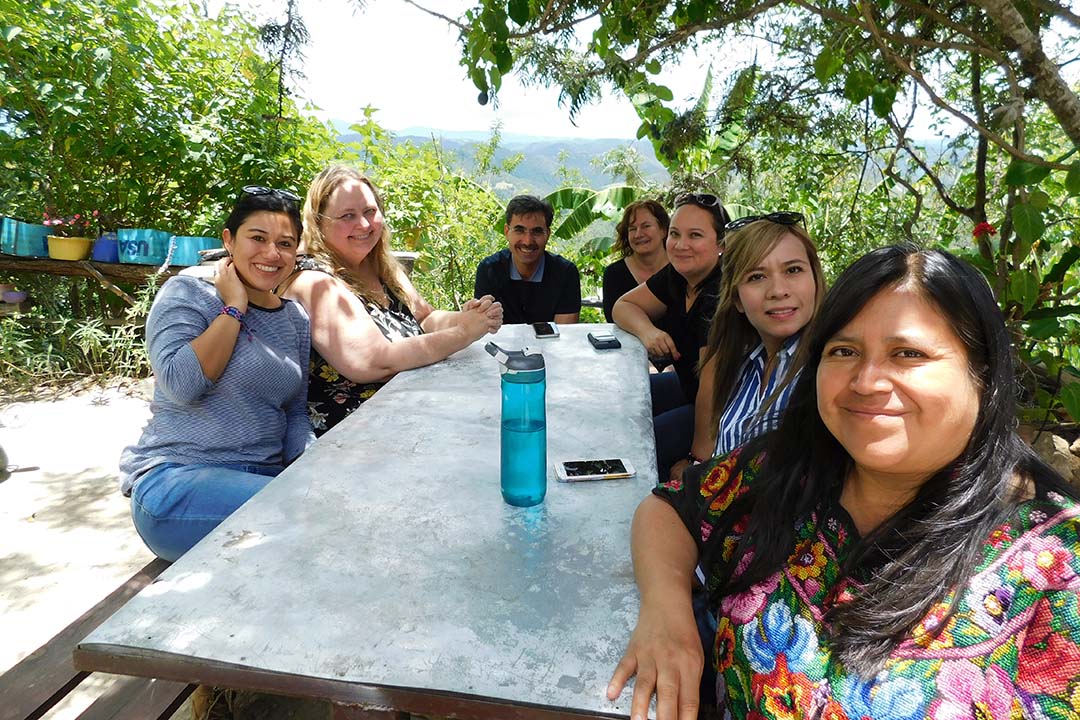
USask-led project shows path to food security in at-risk communities
A University of Saskatchewan (USask)-led research project is literally putting food on the table for families in one of the most malnourished countries in the world.
By Paul Sinkewicz for Research Profile and ImpactA recently completed project by the Vatanparast Nutritional Epidemiology Lab in USask’s College of Pharmacy and Nutrition, in partnership with the University of Idaho (U of I), aimed to improve food security for families in Guatemala.
Climate change has drastically impacted the ability of the largely Indigenous local population in Momostenango, Guatemala, to sustain traditional methods of agriculture. The disruption to the local economy was having disastrous effects on the health of families.
The project led by Dr. Hassan Vatanparast (MD, PhD), supplied funds to households to buy hens, with the central highlands municipality of Momostenango supplying building materials for chicken coops to raise the birds as a continued food source for malnourished families.
Participants Gabriel and Rosalina are raising their two young daughters in a small, well-kept adobe house. With their share of the project funds, they built a coop, purchased 10 laying hens, and carefully nurtured their new enterprise.
“They keep the hens healthy by feeding them corn concentrate mixed with garlic and onion as per their grandmother’s advice,” said Dr. Ginny Lane (PhD), one of the principal researchers along with Vatanparast.
“They now have 75 hens that produce 40 to 50 eggs per day,” said Lane, assistant professor of nutrition at U of I and a registered dietitian.
The family consumes about 10 eggs per day and sells the rest to their neighbours. Demand is so great that usually all the eggs are sold by midday, with neighbours who arrive late leaving empty-handed.
“Prior to the project, their children would get sick often and did not consume many eggs,” said Lane. “Now their daughters are healthy and do not get sick as often. When the hens become old and stop producing, they sell them and save the money to buy new hens that are a cross between barn egg layers and the disease-resistant hens native to the area.”
The family is very dedicated to the care of its hens and told Lane, “We now dream of a better future for our daughters, as they will be able to finish school and have different life options.”
The project involved a total of 10 families, with varying success. Some families used their flock to produce both eggs and chicks to be sold at market, providing food and income.
Other families struggled because they did not have the resources to regularly buy feed for their hens. An illness derailed one family’s operation completely after they were forced to sell their hens to buy medicine.
The project received funding from both the Queen Elizabeth II Diamond Jubilee Scholarship program, which covered a portion of Lane’s time, and a One Health fund grant through USask, which funded the needed supplies. One Health is a global initiative that encourages collaboration among all health disciplines, with the goal of attaining optimal health for people, animals and the environment.
Vatanparast said the overarching goal of the project was to identify alternative approaches to tackle malnutrition in Indigenous communities that have been affected by climate change.
“Before starting this trial, we collected baseline information on malnutrition, the existing resources present in the communities, and the potential adoptability to alternative interventions to improve malnutrition while empowering the community members, especially Indigenous women,” he said.
A short-term impact of the project could include immediately addressing acute malnutrition in Momostenango, a community with one of the highest rates of malnutrition in both North and South America, Vatanparast said.
“In the era of climate change, Gabriel and Rosalina’s success can set an example for long-term impacts of such initiatives, providing a roadmap toward empowering at-risk communities and creating circular economies through the implementation of sustainable approaches.”

